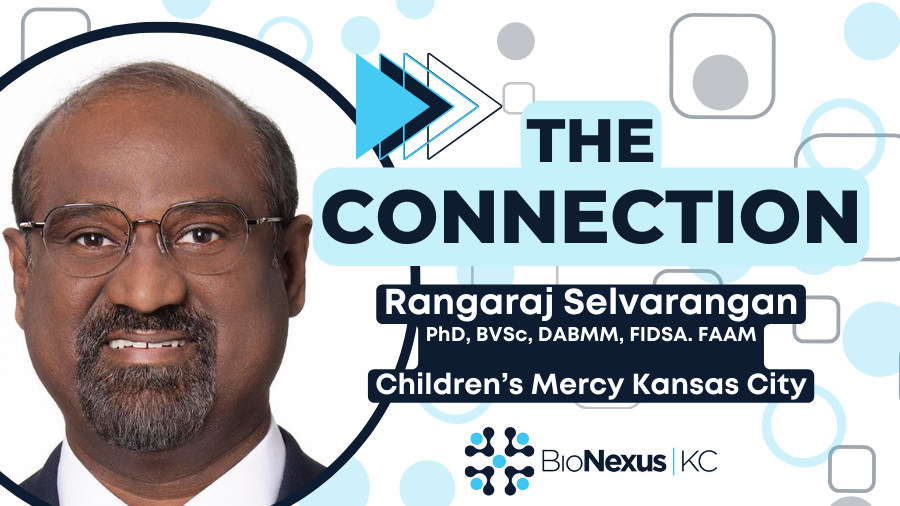
The COVID-19 pandemic was the shared defining moment of this era. Time will be marked as before COVID and after for decades. In the “after-COVID” period, society has considered the damage endured and the catalyzing human ingenuity that limited that negative impact. For Rangaraj Selvarangan, PhD, BVSc, DABMM, FIDSA. FAAM, Director of the Medical Microbiology Laboratory at Children’s Mercy Kansas City and Director of the Emerging Infections Research Program at Children’s Mercy Research Institute (CMRI), the strength and teamwork realized during the pandemic is now being leveraged to treat current and future infections better and faster.
Focusing on pediatric infectious diseases, Selvarangan served the health of the youngest population while much of the attention was on the oldest.
“We spent decades researching the area of infectious disease diagnostics, disease outbreak, and investigations,” Selvarangan said. “That helped us be better prepared to understand the pandemic, educate on transmission, and protect the public.”
Embracing the role of disease detective
Selvarangan and his team saw challenges and quickly recognized that no one was ready for this, but as a group, they pulled together to make an impact. “We relied on each other’s strengths and teamwork. It taught us to be nimble,” Selvarangan said. This agility served their patients, strengthened their resolve, and elevated their capabilities for future research.
Selvarangan has been developing and expanding Children’s Mercy’s infectious disease research for over two decades. Still, after the pandemic, it became clear that there was an opportunity to build off the diagnostic successes and create this new area of emphasis in Emerging Infections.
“Our mission is to protect children’s health by using state-of-the-art surveillance for infectious diseases and leverage the latest advancement and diagnostic tools to characterize the pathogen,” Selvarangan said.
This mission has made Selvarangan a disease detective for children, and he embraces the role. “We search for evidence with surveillance and collect data to document vaccines are safe and protective. If we are successful, we prevent watching otherwise healthy children get sick and potentially be impacted for the rest of their lives,” Selvarangan said.
Efficiency is another goal for Selvarangan’s team; the savings go beyond the financial component. The earlier and more focused the diagnosis, the less impact on the sick patient, the faster treatment can begin, and the more resources conserved for the hospital.
“We call it diagnostic stewardship. We strive to tighten the testing variance and provide the right test for the right patient and at the right time,” Selvarangan said.
Surveillance & monitoring of new vaccines are critical to address their impact.
The department has also been a cornerstone in a CDC-funded program, the New Vaccine Surveillance Network, for the last 15 years. This program connects the research and lessons learned from children’s hospitals nationwide. “We have collaborated with hospitals in Seattle, Texas, Cincinnati, Vanderbilt, Rochester, and Pittsburg. As part of our contribution to the research and the data, we have enrolled more than 20,000 children in this network. This truly helps to understand the effectiveness of the vaccines and the trends in emerging infections,” Selvarangan said. This collaborative approach and support better prepare the entire country to react faster and more effectively than they could alone.
The ingenuity and agility of the healthcare industry during the pandemic were remarkable. For Selvarangan, the work started before COVID-19, supported the effort during, and is keeping his sights set on compounding the impact he can make in the future.